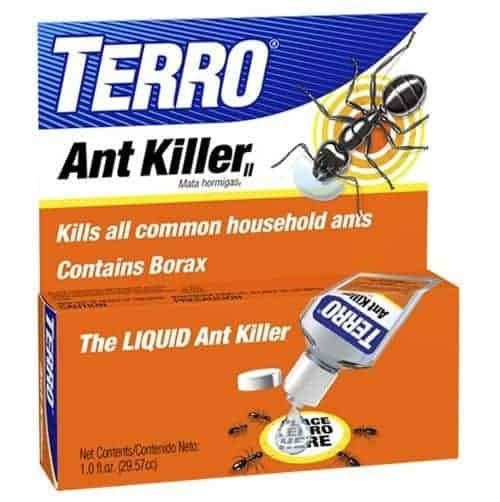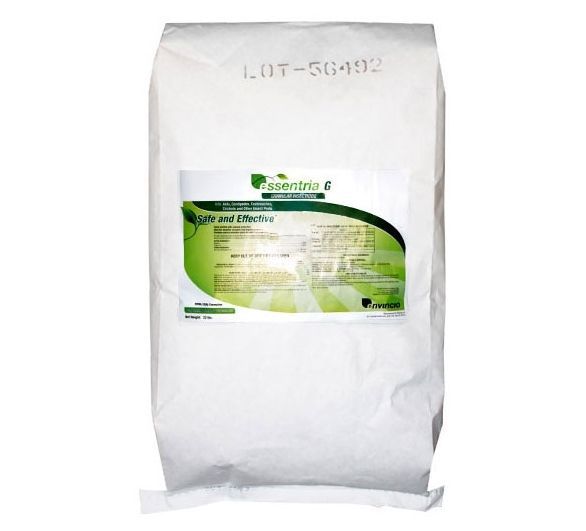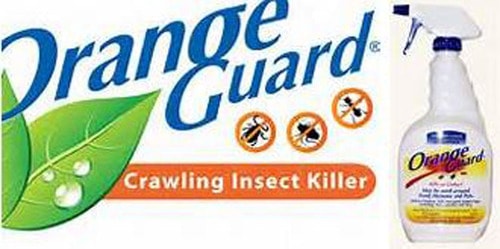How Do You Kill Ants Organically?
Ants can be a major problem both indoors and outside. They often find their way into the kitchen or veggie garden, which are two of the last places many of us want to consider spraying toxic chemicals. So, how can we deal with ants naturally and safely in these areas near our food? Keep reading because we’re about to give you all the tools you need to deal with ants naturally and safely around the home.
Homemade Solutions for Ant Control
What is the best homemade ant killer? One of the best organic ant killers is a simple mixture made with 12 ounces water, 2-3 drops of dish soap and 1/2 cup borax. Add this to a spray bottle to quickly deal with ants and other insects. Borax can be found at most local supermarkets or grocery stores for about $2.00-$4.00 per box and will last you an entire year if applied correctly according to label instructions. It’s also often sold in a gel form for use around baseboards. Later on we’ll share a recipe for homemade ant bait stations using boric acid, but a simple fix to an immediate problem is to spray this mixture along the path ants use to enter your home.
How does baking soda kill ants? Another option people often use against ants is plain old baking soda. It’s sprinkled around the infested area along with equal parts powdered sugar. Ants eat the baking soda and sugar mixture, which is too alkaline for them to properly digest. The result is that it dehydrates them similar to the results you can achieve with DE, which we will cover later on in the article. Next though, let’s look at something you may have mixed with baking soda as an experiment back in elementary school…
Will Vinegar kill ants in the garden? Not exactly, but it is a good tool in your arsenal nonetheless! Vinegar acts to deter ants because of its strong smell, which inhibits the pheromones ants use to communicate with one another. If you want to use vinegar as a deterrent, then simply apply it in a spray bottle and give the ground around the plants a light misting in areas where you see ants marching to and from your plants. This will buy you some time while you work to find and eliminate their colony.
Are there any plants that deter ants? Sometimes you need something more permanent than vinegar to repel ants away from an area around the home. This is where the many plants that deter ants can come in handy both indoors and outside. Planting lavender, mint, thyme and rosemary either in a window box or outdoors around your veggie garden is an excellent long-term strategy for ant deterrent purposes. Plus, these plants are also known to help repel a whole host of unwanted pests including:
As an added bonus, you’ll always have fresh herbs to cook with!
Recipe: Homemade Boric Acid [Borax] Bait Stations
As we already mentioned Borax is commonly used to deal with ants as its chemical properties disrupt their nervous systems. The following recipe allows you to use Borax in a bait station that the ants will be drawn into. This natural acid is safe to use around kids and pets. Plus, it’s not just effective against ants, but also roaches and many other types of insects that are drawn to our kitchens in search of food.
Mix up any of the following foods with 3/4 tsp. boric acid. Pick the food you think ants are most likely to go after based on where you found them in your kitchen.
- 1 Cup Sugar Water
- 1 Cup Raw Honey
- 1 Cup (mixed) Peanut Butter and Jelly
- 1 Cup Bacon Grease
You don’t need a lot of the Borax and too much can actually make the ants avoid your bait! Leave this mixture near where the ant are a problem and they should begin to take the bait back to the colony, which raises a question. Just how long does boric acid take to kill ants?
The answer depends on how fast the poison reaches the queen and it can often take 3-4 weeks to completely deal with a colony using ant bait. If you need the ants gone faster, you may want to check out the commercially available organic ant bait stations listed below.
Indoor Ant Control with Commercially Available Bait Stations
One of the most recognizable brands in this space is Terro, which you’ll commonly see in hardware stores all over. But most people are unaware that the Terro bait stations are actually an organic gel product! We recommend it for ease of use and effectiveness around the home. Last summer, we had a swarm of ants that found their way into some dog food that was accidentally left out in our garage. They quickly shifted their attention to the Terro gel stations we set out and were gone in just a few days. You can buy Terro ant bait stations online through Arbico Organics. Just click on the image below to have them shipped to your door.
Ant Killer Spray for Indoor Use
Of course, seeing a line of ants marching through your kitchen is a bit concerning to say the least and you don’t want to wait around for the bait to work if you have kids at home! If you need ants gone now, I’ve had a great experience using the Raid Safe Ant and Roach Killer product that’s available online or in most local hardware stores. I know! You’re thinking, ‘Raid? why would I trust a big mega-corp to have safe ingredients!?’
Well here’s the thing, if we want corporate America to clean up their act, we need to be voting with our dollars by buying their products when they actually come out with something that’s good for the earth. This product fits the bill. It’s made with lemongrass, which is already on our list of plants that repel ants plus Geraniol which is a form of alcohol derived from pine trees.
The smell can be a bit much, but take my word for it…THIS SHIT WORKS!!!
Sealing Windows and Walls Against Further Intrusion
When it comes to organic ant control, there are a number of options available. If you live in an urban setting, where the ants may be coming from outside your home and into your kitchen via cracks in the foundation, one option is to use diatomaceous earth (DE) outdoors around entryways like doors and windows. DE will also kill other insects like spiders, slugs and millipedes because its tiny particles (diatomes) can pierce their exoskeletons and dehydrate them from within, so the ants die quickly without any toxic residue left behind!
However, this should be considered a temporary solution while you work to completely block off their ways of getting into the home. Gaps in your windows and doors can be filled in with silicon or caulking to prevent ants from coming inside, and this is also important for saving money on your electricity bills! If you constantly have ants entering around the same area, check for damaged caulk and repair it so they cannot get in anymore.
Granules for Outdoor Ant Control
For controlling ants and other insects all over the yard, many homeowners use a granulated product that can be spread throughout the lawn. There are organic options for this, and the one we found to have the most value is the Essentra brand available at Arbico Organics. Essentria G Granular Insecticide is a low-risk pesticide that uses essential oils to treat hard-to-control pests. These granules were formulated for outdoor use on turf, landscaped areas and around the perimeter of buildings. Essentria G is a suitable alternative to many chemical sprays, especially in and around sensitive facilities such as school grounds, apartments, government facilities, nurseries and gardens.
Safe Methods for Organic Ant Control in the Vegetable Garden
As we mentioned before, you don’t want to use anything toxic around your vegetable garden, and even some of the organic pest control substances out there aren’t ideal for use around food production. Ants are often attracted to aphids and other small insects in the vegetable garden, so you might want to try building a natural barrier as your first strategy to keep them out.
- Use cinnamon sticks or cloves as barriers along your rows and across pathways where ants are entering the vegetable patch. This should encourage them to seek food elsewhere.
- Place dabs of honey next to plants that have aphids on them – this will draw ants away from those plants and to the sweet treat instead, which buys you some time to get the aphids under control.
If you know where the ant colony is and it’s far enough away from your plants, the best solution is to attack the source of the problem head-on.
Natural Ways to Destroy an Ant Nest
Boiling hot water poured into the ant hill has actually been found to be successful in killing the colony about 40% of the time. You can increase this success rate further by adding some cinnamon to the boiling water too. Ants that inhale the vapors of cinnamon oil will quickly suffocate and die. Be sure to use enough water to heat up the entire area deep into the soil, as many ant colonies can be 1-2 feet underground. Your goal is to use enough water to reach the queen deep below the surface of the earth and be rid of the nest once and for all.
We hope you found this info useful while you’re on your mission to get rid of ants around your house or apartment. Check out the pest control section of our blog for more useful information on keeping bugs away from your home year-round.








